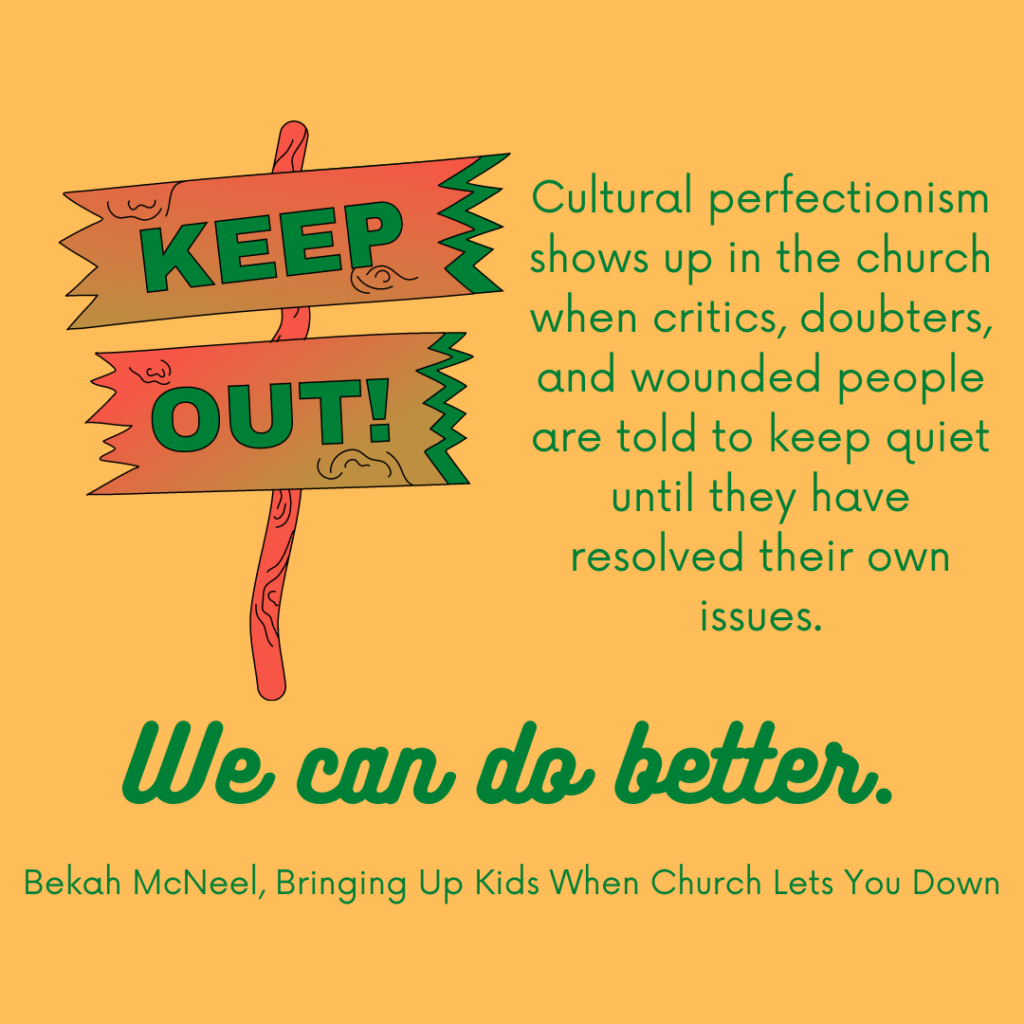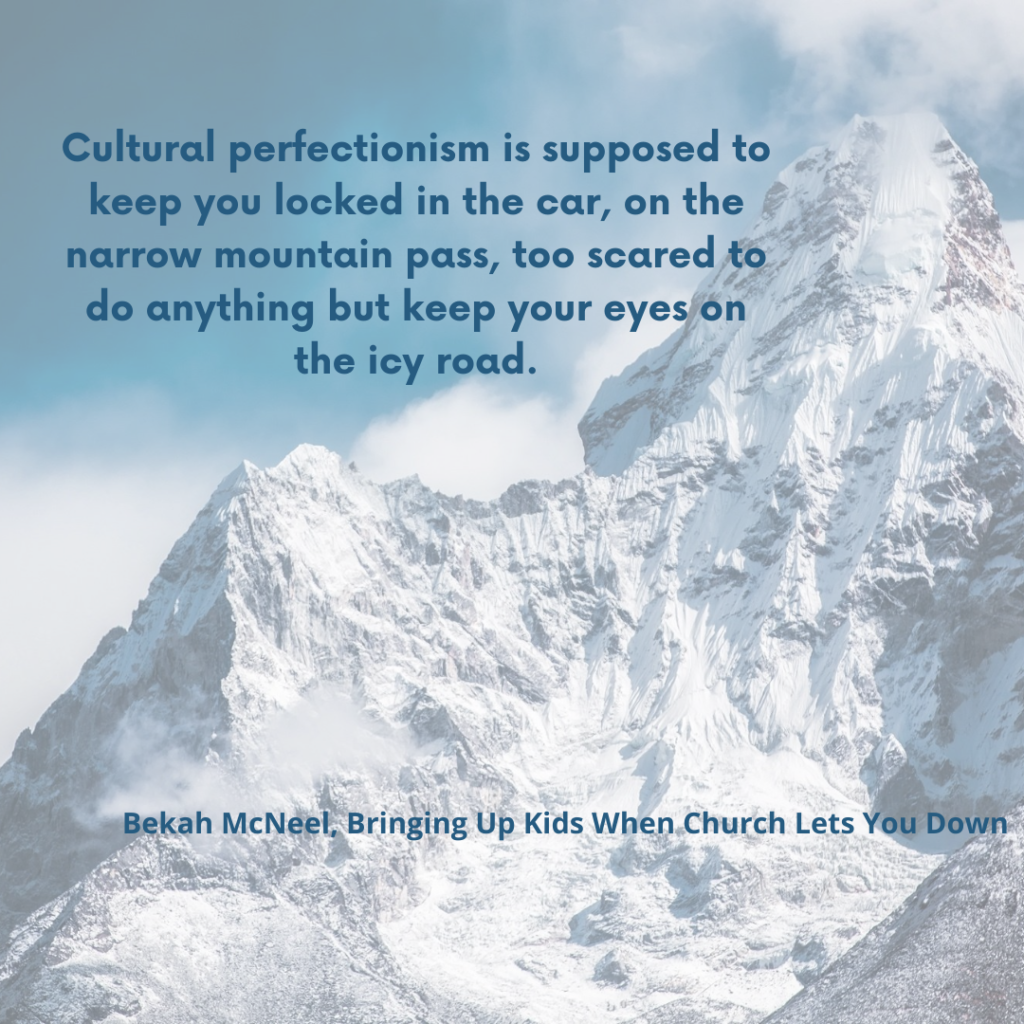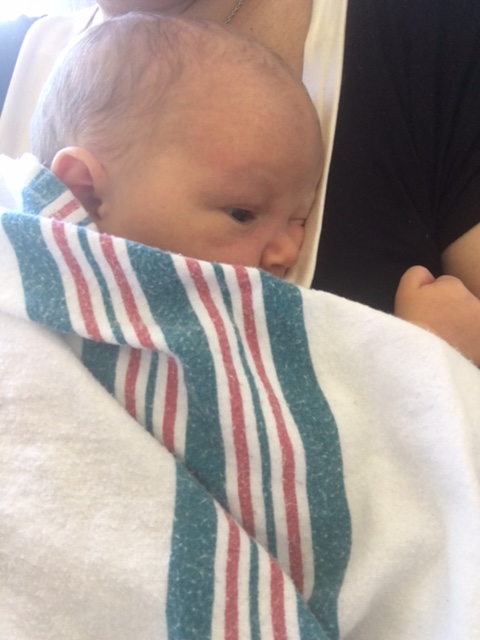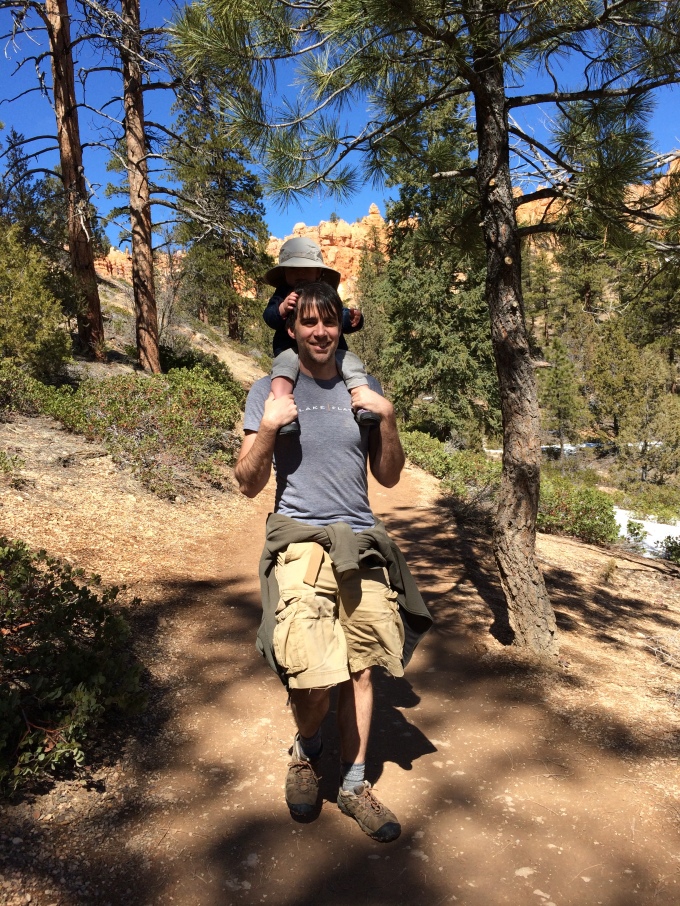August 26, 2019
No Comments

The ongoing work of rooting out perfectionism in my life and habits—and replacing it with Gospel truth—was going really well. I was finding my joy in the work, not the praise for the work. I was finding it easier to shrug and say, “That could have gone better.” I wasn’t freaking out whenever I had to talk to someone from my past about why we are making decisions so out of line with the way “we were raised.” I was more comfortable thinking, “not everyone is going to like you, agree with you, or even respect you.”
So. Much. Rooting!
And then school started.
A new school. A school where my children would trade free-spirited attire for uniforms. Trade Montessori exploration for dual-language rigor. Trading a school where our socioeconomic lifestyle is the norm, to a school that is intentionally diverse in that regard.
First were the fears: will they think my children are spoiled? Entitled? Undisciplined? Will my kids feel “weird” because they look different than most of their peers? Will they react poorly to the Spanish immersion?
And if they do…will they be seen as “bad kids?”
The first week did a lot to assuage my fears. Things seemed to be going swimmingly. Then came the bad reports. I won’t go into the details of our week of discipline issues and struggles to get to the bottom of what appears to be an adjustment from Montessori, coupled with a bright, strong-willed kid’s spirit.
The important part is that it took our family into the next phase of perfection detox. Or rather, it threw us into the deep end of that phase and held our heads under for a week.
I regret to report that on day one, the bad report caught me off guard. instead of listening to my kid and talking about it rationally, I let my own shame (“they must not discipline their kids”) run the show.
I knew it, I thought, we should have been harder on them. We should have been more authoritarian, because now they will have no respect for authority. They are going to be labeled a bad kids. One of them going to go to jail.
(I’ve been reporting on the school-to-prison pipeline, which will make a neurotic mess out of anyone.)
I took that shame—which is not based in fact, we totally discipline our kids—and tried to appease my own psyche by cramming 5 years of deferred harshness into one ride home from school.
I pushed until I got the tears I thought were appropriate. I roared. I growled. I latched on like a hungry animal and did not let up until my poor sobbing child was just “sorry.”
And friends, let me tell you, to add to my guilt: out of those deepest sobs, my kid was able to say, “Mommy that voice that you are using is making my brain freak out and I can’t think.”
My small child, the one I feel it necessary to eat alive, is telling me that I’ve activated their amygdala and am now working against myself.
This might be among my bottom ten parenting moments. No, bottom five. Easily bottom five.
It’s not that kids never need the hip check or attitude adjustment. And it’s not that those things can’t involve tears and tough love. It’s that the entire interaction was based on my fear, my embarrassment, and the unresolved issues I have that I’m not “doing it right” when it comes to parenting.
The fear that I’m not spanking when I should.
The fear that I’m letting my kids have too many choices, and letting them ask “why?”
The fear that I should not be reasoning with them.
Notice I’m not even mentioning my husband, who has just as much to do with our parenting choices as I do. He’s an amazing parent, and I take joy in how present and accountable he is. Dads are critical to identity formation and human development. But in the world of parenting shame and regret, I, like many moms, bear it alone.
Dads aren’t socially accountable for the scars, the baggage, the neurosis caused by their interactions with their kids. Dads have been allowed to, if they want, just be themselves, however destructive that may be, and it will be buffered and balanced by Mom. Mom, in the model of the 80’s and 90’s, is the expert parent, the one who has to get it right.
The converse, in this model, is true as well. A competent dad can’t make up for a failing mom, and if your kids are “bad,” you, Mom, aren’t getting it right.
But I reject that. And so I began the work of replacement.
As bad as that first day was, with 5-year-old Bekah snarling at her children, the next few days were a slow climb to “better.” Not great. But better.
Day two: The basics. My view of my children will inform their views of themselves, and they need to see that my love is not contingent on their ability to follow directions.
Not just my love, but my delight in them. The Bible says that God sings over us. He delights in us because we are his…even though we elicit other emotions (anger, sadness, etc), the delight is deeper, it comes from a more permanent place. My kids need to know that I don’t begrudge their place in my heart. I relish it.
While a stern word is merited sometimes, they should never feel like my kindness toward them is something to be given or taken away based on their behavior. Even if my affection is the thing they want most, and taking it away would be the best motivator to make them behave, it’s not on the table. Hugs are not gold stars. Hugs are air.
So I had to decide: is having lunch with my daughter a reward, or an expression of love? Is snuggling with my son before bed his privilege, or my delight?
Day three: Putting it into practice. My children should never expect criticism from me. They should expect love and acceptance. In that context correction stands out, catches their attention, and helps them make better choices.
This is also the day I called in the reserves. I reached out to friends who have experience with small children, their own and those they teach. I asked them how they would address the issue, and what I should be thinking about as I prepare for each new report.
Shame isolates us. I think it isolates moms in an especially cruel way.
So many women have been defined by motherhood, with the fruit of their labor being the performance of their kids. In that economy it’s hard to fight perfectionistic parenting. Which draws us deeper into trying to prove how awesome our kids are…which just exacerbates the anxiety of the other parents. I don’t blame social media either. This can happen in the pick up line, on play dates, at birthday parties, at church. This happens wherever kids, like prize goats at the fair, are being lined up for ribbons, real or imagined.
In order to reach out to friends, I had to remember that my identity doesn’t come from having “awesome kids.” It comes from being a loved child of God. And he loves me no matter how my kids behave. Better yet, he loves THEM no matter how they behave.
My kids know this. If you ask them who loves them, even right after they get in trouble, they will say Mom, Dad, and Jesus (in random orders). Then they will go on to add grandparents, aunts and uncles, caregivers, and their teachers.
Day four: Advocating for celebration. I looked for ways to build on my kids’ views of themselves as “loved” so doing good things and blessing their teachers with cooperation might fit with their imaginations of themselves. If they are kind, brave, curious, creative people…then they can do the things that match.
Day five: By day five, we had turned a corner. We were joyful, talking constantly about how we could show love and respect, and what are the benefits of focusing in class. We were practicing self-control at home, but in ways that were not punitive or high stakes.
Our journey is just beginning. We have many years of school, of bad news, bad reports, bad grades, lost games, lost uniforms, lost homework. But even if these are daily occurrences for the next 13 years, it will not change our love for our kids.
I also anticipate lots of “bad reports”, precisely because our kids know that they are loved and accepted and celebrated. I never doubted my parents love, but somewhere along the line I picked up an approval addiction, and believed the lie that I had to perform to be accepted. So much of my own good behavior is based on my addiction to approval, and my need of external confirmation to justify my existence. Good grades. Good daughter. Good friend. Good worker. Good wife. Good mom. And good becomes best, and best becomes perfect, and suddenly, anything short of perfect is worthless.
If my kids’ identities are more secure, they will probably experiment and push more. They will not hide their failures. Which means I will have to learn to deal with them. I will have to grow up all over again, this time with two sets of impressionable eyes watching me.



 women say the words “gospel
women say the words “gospel



 I’m looking through the pictures of my son’s baptism yesterday, All Saints Day. It was an Anglican service, so we were up there for a while. The time stamps on the photos range from 11:35-11:48 am. They catch my daughter misbehaving. They show my son cooperating (though concerned) with the water, the oil, the lifting, and being walked through the congregation. The pictures catch our faces, immersed in the joy of infant baptism and the realities of parenting a three-year-old sister. We were celebrating a spiritual reality that informs how we live on earth.
I’m looking through the pictures of my son’s baptism yesterday, All Saints Day. It was an Anglican service, so we were up there for a while. The time stamps on the photos range from 11:35-11:48 am. They catch my daughter misbehaving. They show my son cooperating (though concerned) with the water, the oil, the lifting, and being walked through the congregation. The pictures catch our faces, immersed in the joy of infant baptism and the realities of parenting a three-year-old sister. We were celebrating a spiritual reality that informs how we live on earth.
